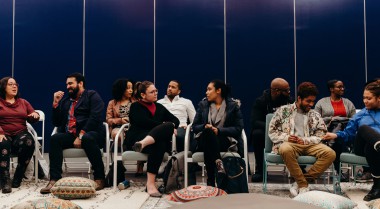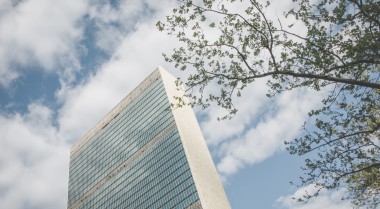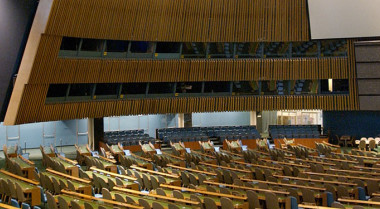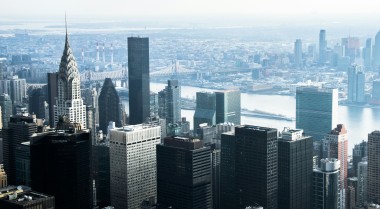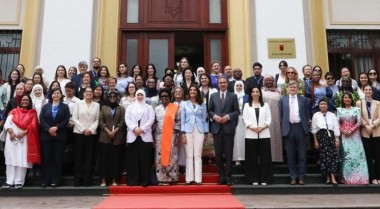
2020 Peacebuilding Architecture Review
What is the 2020 Peacebuilding Architecture Review?
The 2020 Peacebuilding Architecture Review (hereafter, the Review) was mandated by the 2016 resolutions (A/RES/70/262 and S/RES/2282) and stipulated to happen in the 74th session of the General Assembly (UNGA).
The focus of the Review was on the assessment of the implementation of existing work across 4 key pillars outlined in the 2018 Report of the Secretary-General on Peacebuilding and Sustaining Peace (S/2018/43): 1) Operational Support; 2) UN Leadership; 3) Partnerships for Peacebuilding; 4) Financing for Peacebuilding.
The Terms of Reference outlined an informal and a formal phase of the review.
Informal Phase:
The informal phase, concluded in August 2020, had three tracks:
- A series of Peacebuilding Commission meetings;
- A panel of Independent Eminent Persons (IEP) appointed by the Secretary-General to offer reflections on progress on peacebuilding and sustaining peace; and
- Inclusive thematic and regional consultations by Member States and/or UN entities together with think tanks, policy and academic institutions and regional organisations.
The Independent Eminent Persons Panel’s Letter to the Secretary-General can be found here>>
The Peacebuilding Commission’s Chair Letter can be found here>>
The summary of all of the outcomes of the regional and thematic consultations can be found here>>
GPPAC’s participation in the informal phase of the Review
Informal Thematic Submissions:
- Policy Coherence through Meaningful Inclusion
- In the Spirit of Partnership: Operationalisation of Sustaining Peace at the Regional Level
- Building Sustainable Peace: Recommendations for the 2020 Peacebuilding Architecture Review, QUNO and GPPAC
- Sustaining Peace in Practice: Lessons Learned from Liberia and Papua New Guinea, GPPAC and IPI
Operationalising Sustaining Peace: Learning from the Sustaining Peace Roundtable Series, IPI, Dag Hammarskjöld Foundation, GNWP & GPPAC
Implementation of Sustaining Peace: Recommendations on Financing for Peacebuilding, GPPAC
Reflecting on Peacebuilding and Sustaining Peace: The Perspective of Civil Society, DHF, GPPAC, PeaceDirect and PBSO
Regional Consultations:
- 18 February 2020, ‘In Search of Sustaining Peace: A Case-Study of Peacebuilding in South Caucasus’, the South Caucasus.
- 2 June 2020, ‘No Sustainable Peace Without Us: Local Perspectives on Peacebuilding in the Middle East and North Africa’, Middle East and North Africa (MENA).
- 8 July 2020, ‘Lessons Learned and Strategic Operationalisation of Peacebuilding and Sustaining Peace in the Americas’, The Americas.
- 14 July 2020, ‘Understanding the Inclusive Peace-Development- Humanitarian Nexus: Gender, Climate and Sustaining Peace in the Pacific’, The Pacific.
Briefings:
- 28 July 2020, GPPAC's Chair of Board Briefs Peacebuilding Commission on Impact of COVID-19 on Peacebuilding in the Pacific
Formal Phase:
As a result of the consultations with Member States and informed by the informal phase of the Review, the Security Council and General Assembly adopted resolution 2558.
The 2020 dual resolutions on Peacebuilding and Sustaining Peace (A/RES/75/201-S/RES/2558) do not reconceptualize peacebuilding and sustaining peace, but rather focus on what is needed to strengthen the implementation of the 2016 resolutions on peacebuilding and sustaining peace and advance coherence in peacebuilding efforts. The new resolutions once again underscore the responsibility of national governments in identifying, driving and directing priorities, strategies and activities for peacebuilding and sustaining peace. Furthermore, the resolutions reiterate that limited peacebuilding financing remains a critical challenge, and take note of the General Assembly’s decision to convene a high-level meeting in the 76th session to advance adequate, predictable and sustained financing for peacebuilding. The resolutions invite relevant UN bodies and organs, including the Peacebuilding Commission (PBC), to present inputs in advance of this meeting for Member States’ consideration and discussion. Finally, the resolutions call for another comprehensive review of UN peacebuilding in 2025, with two Secretary-General’s reports – in 2022 and 2024 – accompanying the preparations for this review.
With this in mind, the opportunities that could be drawn moving forward for local peacebuilders include:
- Supporting the discussion on financing for peacebuilding in a way that allows flexible, sustainable and predictable funding to local civil society;
- Engaging in independent assessment of the impact of the sustaining peace work at the local level;
- Supporting stronger efforts of the UN System at the field to engage in intentional partnerships with local peacebuilders;
- Ensuring that the Peacebuilding Commission continues to drive the direction of the agenda ahead of 2025; and
- Ensuring that local peacebuilders, including women and youth, can meaningfully continue to shape the direction of peacebuilding and sustaining peace at all levels.
